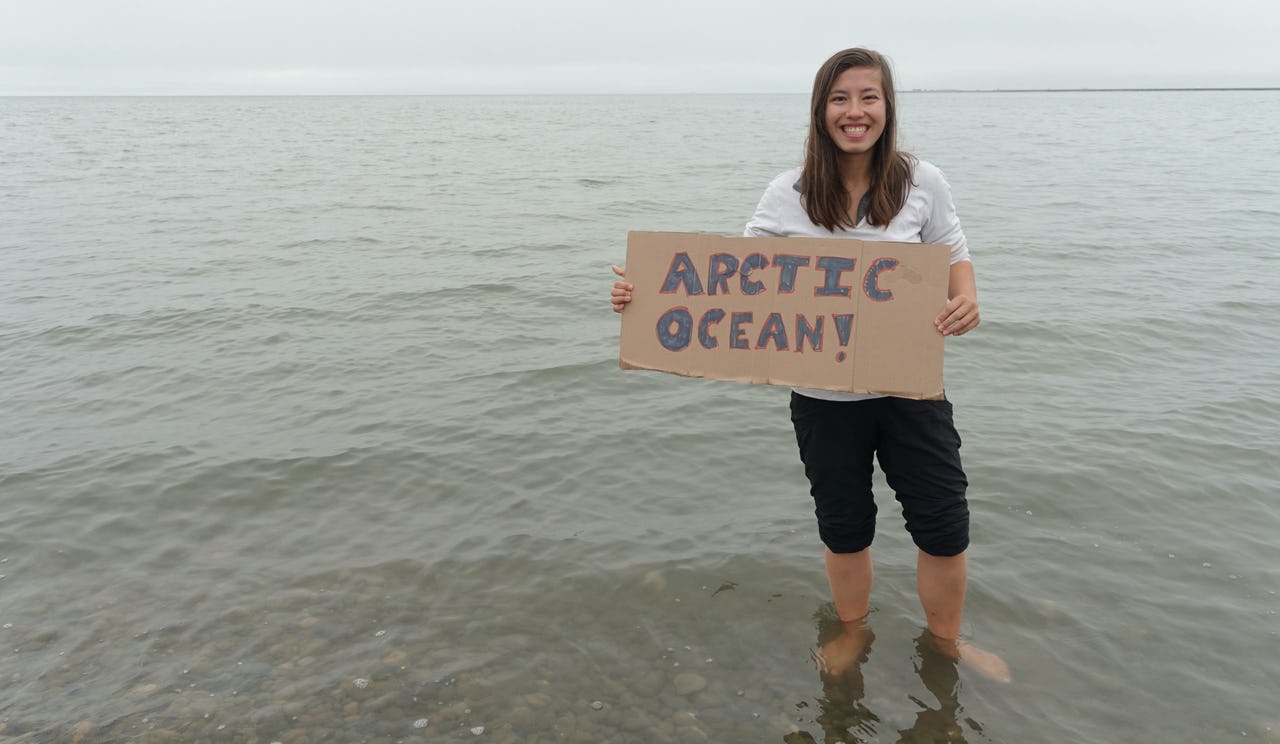TAI Bookshelf Podcast - Underwater Cultural Heritage in the Arctic with Emily Tsui

Emily Tsui during a visit to Prudhoe Bay, Alaska. Photo: Laurent Smeets
The Arctic Institute’s Bookshelf Podcast is back with its second series! This season, your favorite hosts Liubov Timonina and Romain Chuffart are joined by a new host, Saga Helgason. Together they chat with scholars and experts to make the Arctic easy and accessible to everyone. Tune in every other week and join our in-depth conversations that take you beyond the headlines and right into the latest ideas, challenges, and experiences from the Arctic.
This week, Romain and Saga had a conversation with Emily Tsui about underwater cultural heritage and its implications. They cover the current legal framework surrounding underwater cultural heritage in the Arctic, its interactions with international law and how it can be improved. Emily talks about the significance of cultural heritage for Indigenous communities across the Arctic. She also touches on some of her favourite stories about Arctic exploration and what it’s like being an early-career researcher in Canada.
Emily Tsui is a Visiting Fellow at The Arctic Institute. She is a Juris Doctor/Master of Global Affairs candidate at the University of Toronto Faculty of Law and Munk School of Global Affairs and Public Policy, Canada. She previously served as a summer associate at an international law firm, legal intern at the Permanent Court of Arbitration in Singapore, and legal intern at the Mechanism for International Criminal Tribunals in The Hague. Her current research interests include international law, cultural and natural heritage protection, governance institutions, and access to justice in the Arctic region. She was also a fellow for the policy-law-science nexus in polar regions panel for the 2020 Polar Law Symposium.
This episode was recorded in March 2021.